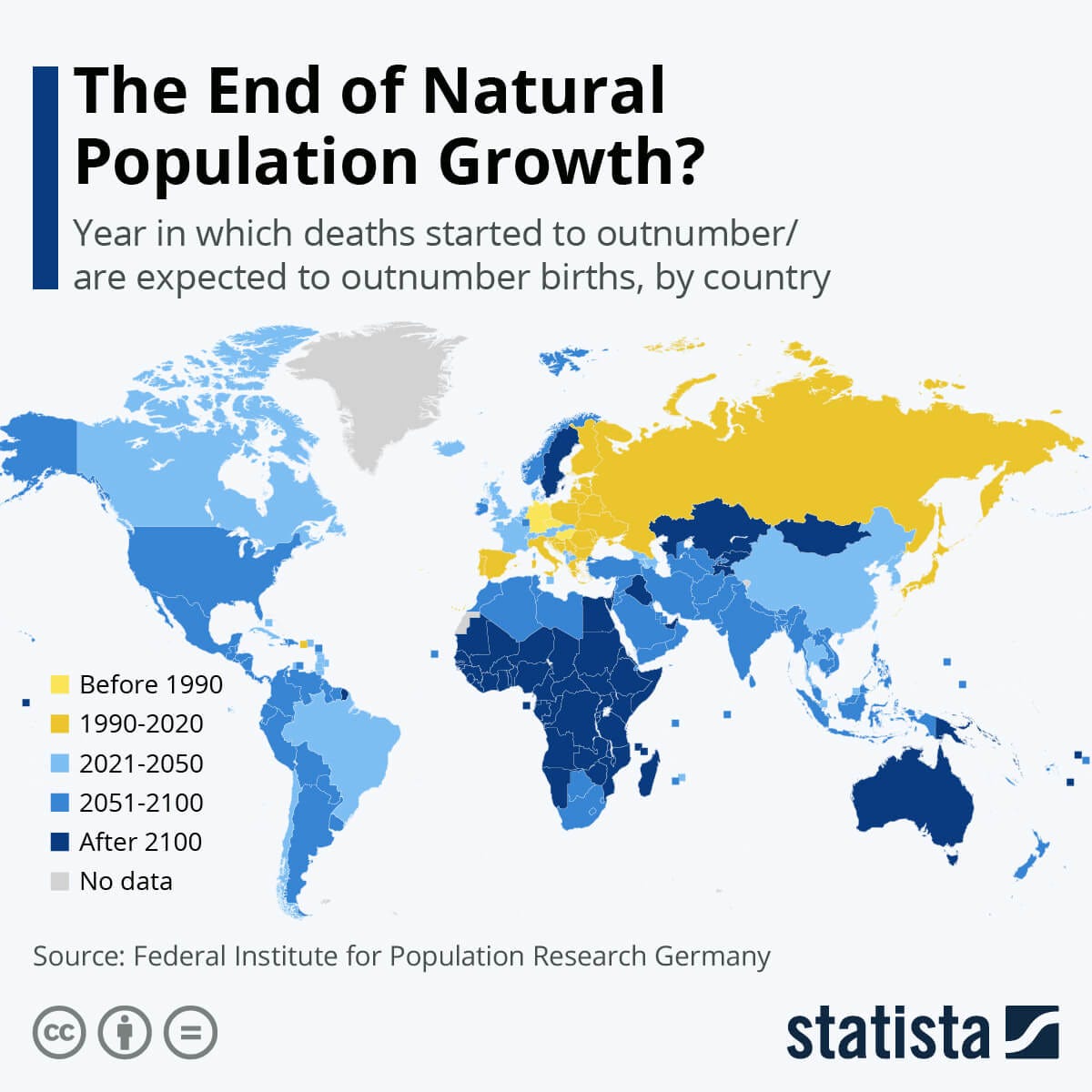4 Billion People by 2100 – The World’s Population Could Be Cut in Half by the End of the Century.
This is at least the thesis supported by James Pomeroy, an economist at HSBC.
Trees don't grow to the sky. Even less the world population. The number of human beings on the way to reaching 8 billion in the fall of 2022, according to the latest United Nations forecasts, risks collapsing before the end of the century. This is at least the thesis defended by James Pomeroy, an economist at HSBC, in a study published on August 22, 202…
Keep reading with a 7-day free trial
Subscribe to Sylvain Saurel’s Newsletter to keep reading this post and get 7 days of free access to the full post archives.




